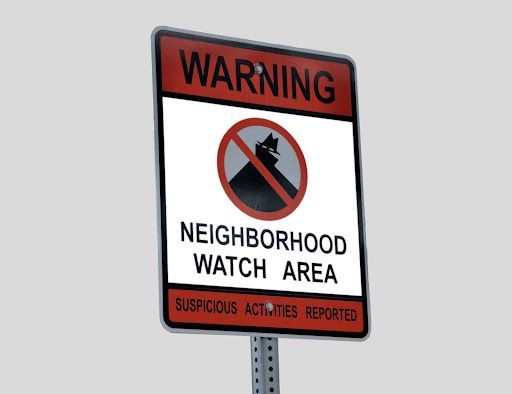Background Checks: A Guide to Legal Compliance and Best Practices
The hire of a new employee marks the start of a new chapter in the professional narrative of any organization. The significance of this process is paramount, calling for an essential security measure: background checks. The procedure of conducting a background check is a crucial step in safeguarding a company's assets, reputation, and employees. This guide traverses the legal landscape governing background checks, delineates investigatory depth, deciphers the results, and ensures even-handedness and privacy throughout the operation.
Legal Groundwork for Background Checks
The legal framework that underpins background checks is founded on federal, state, and sometimes local laws. The Fair Credit Reporting Act (FCRA) is the primary federal law that regulates the use of background checks for employment purposes. It is vital for employers to secure written consent from candidates before obtaining a background report and to provide them with a copy of the report and a summary of their rights under the FCRA before taking any adverse action based on the report's content.
State laws may place additional restrictions or provide specific provisions beyond the FCRA. Employers must remain cognizant of the laws within the jurisdictions where they operate, as some states restrict the use of certain types of information, such as criminal records and credit histories.
Scope and Depth of Investigation
When delving into a candidate's past, the scope of the investigation should align with the nature of the job. A position's access to financial resources, sensitive data, or vulnerable populations will often necessitate a more in-depth background check. Common elements of a check include criminal records, credit history, employment verification, and educational background.
However, there is a fine balance to maintain. While a comprehensive check is encouraged for security reasons, it is equally vital not to overextend the inquiry into areas that may infringe on privacy rights or lead to discrimination.
Interpreting Background Check Results
Interpreting the results of a background check is a complex task that requires a careful and knowledgeable approach. An arrest record may not be an outright disqualifier for employment; the nature of any offense, the time lapsed, and its relevance to job responsibilities are crucial factors to consider. The same can be said for credit histories, where financial difficulties may have no bearing on a person's ability to perform in a particular role.
Employers are also tasked with the challenge of distinguishing between credible information and potential inaccuracies. Ensuring that decisions are not made on incorrect or out-of-date information is a legal and ethical necessity.
Ensuring Fairness in the Hiring Process
Fairness in the hiring process is not only a moral imperative but also a legal one. The Equal Employment Opportunity Commission (EEOC) enforces laws that prevent employment discrimination. They provide guidance indicating that employers must apply background check procedures uniformly and avoid policies that disproportionately impact individuals based on race, national origin, or other protected characteristics.
When reviewing background check results, there should be room for candidates to provide context or refute inaccuracies, affording them the opportunity to be fairly assessed.
Confidentiality in Background Investigations
The confidentiality of information obtained during a background check is a matter of utmost importance. Personal data must be safeguarded against unauthorized disclosure, consistent with privacy laws and the FCRA. Employers should limit access to this information to only those individuals who need it for decision-making in the hiring process.
Background Checks as Part of a Security Strategy
Background checks serve as a foundation for a broader security strategy that protects an organization from internal threats. They can detect potential risks before they become actual ones, but they should not exist in isolation. Ongoing employee monitoring, regular audits, and a culture of ethical behavior complement the initial vetting process and reinforce an enterprise's commitment to security.
Best Practices for Employers
Employers should integrate best practices into their hiring procedures to ensure they get the most out of background checks while respecting legal boundaries and candidates' rights. Developing a standard process for conducting and reviewing background checks helps maintain consistency. Moreover, training those involved in the hiring process to understand the legal responsibilities and ethical nuances involved with background checks is crucial.
Educating Employees
It is beneficial for employees to understand the reasons and procedures behind background checks. This transparency can foster a culture of trust and reinforce the notion that security measures are in place to protect everyone within the organization.
Background checks present a powerful tool in the hiring arsenal of any organization, ensuring that those brought into the fold align with the company's values and standards. While navigating the intricacies of legal compliance may seem daunting, adherence to the outlined laws and practices offers protection against potential liabilities.
The pursuit of a secure organizational environment is an ongoing process that extends beyond initial hiring decisions. Background checks constitute a critical piece of this effort, providing a gateway through which employers can anticipate risks and reinforce robust operational integrity. They encapsulate the precautionary stance an organization must adopt to thrive in today's environment, where security is synonymous with stability.
In the ever-evolving world of business, where new regulatory landscapes loom on the horizon and the security of organizational assets is increasingly under scrutiny, the role of background checks remains consistently pivotal. For employers in pursuit of excellence and protection, these procedures are not just a formality but a fundamental aspect of responsible hiring practice. Hence, mastering the art of conducting background checks is an invaluable investment in the future of any enterprise.
Protect your assets, reputation, and personnel by partnering with us for a tailored approach to safety and compliance. Don't take risks with your hiring process — let us ensure you have the trustworthy team you deserve. Contact us today to learn more and start building a safer, more secure future.










